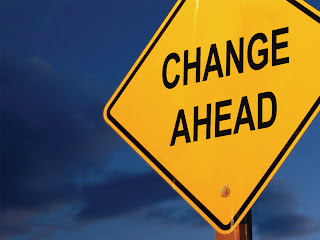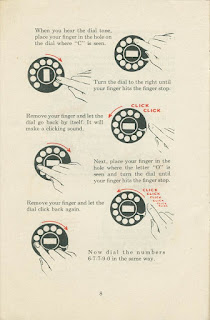Insanity vs Change
"The definition of insanity is doing the same thing over and over and expecting different results." This quote is often misattributed to Albert Einstein, but is, nonetheless, a painful truth. The ability to change and change often is a skill of which very few people are truly capable, and one that could have a profound affect on our culture, if we would learn it well.
I recently had a wonderful, wise woman tell me about her perspective on nostalgia. She spoke of old songs and traditional hymns that she grew up singing many years ago that she had always felt "stirred" her soul and helped her to worship. But after reading and listening to Biblical, scholarly advice, she had an epiphany. She had come to realize that such nostalgia carried more detriment than healing for the soul. In effect, this form of nostalgia actually "kept" her in the past, where she thought everything was great...the proverbial "good ol' days" are not really as good as we tend to think. In fact, if we are going to focus on where God needs and wants us to go to and where He wants us to be next, we have to move away from the past, and nostalgia is a hindrance to the Spiritual discipline of following God's guidance.
So, how do we go forward? That's easy: Change. As the quote at the top of the page insists, insanity is the other option. Change is often treated like the elephant in the room, as people refer to it as the taboo topic that we must "be very careful" about bringing up in public places, because "some people don't like change." Or, at least, that's what we all say. However, what we need, as believers, is to learn how to speak with enthusiasm and excitement about change. The truth is, most people actually DO enjoy change, once it is fully implemented; it is the fear of the unknown with which they struggle, not the change itself. I should note here, that it is not beneficial to ignore heritage or disrespect it. The reason you have the ability to change today is because someone in the past was willing to change things before you. Acknowledge and appreciate their work, regardless of whether or not it is a "thing of the past" in your assessment...and celebrate it!
The truth is, most people actually DO enjoy change, once it is fully implemented; it is the fear of the unknown with which they struggle, not the change itself. I should note here, that it is not beneficial to ignore heritage or disrespect it. The reason you have the ability to change today is because someone in the past was willing to change things before you. Acknowledge and appreciate their work, regardless of whether or not it is a "thing of the past" in your assessment...and celebrate it!
And since change is not only beneficial to our faith, but the catalyst for growth, we would do well to make it our passion as believers. Once again, I find that Seth Godin has wise words to help grow us through the acceptance of the importance of change. Here is a recent excerpt (abridged):
instigators of growth in His kingdom.
Grace and peace,
Jeff
I recently had a wonderful, wise woman tell me about her perspective on nostalgia. She spoke of old songs and traditional hymns that she grew up singing many years ago that she had always felt "stirred" her soul and helped her to worship. But after reading and listening to Biblical, scholarly advice, she had an epiphany. She had come to realize that such nostalgia carried more detriment than healing for the soul. In effect, this form of nostalgia actually "kept" her in the past, where she thought everything was great...the proverbial "good ol' days" are not really as good as we tend to think. In fact, if we are going to focus on where God needs and wants us to go to and where He wants us to be next, we have to move away from the past, and nostalgia is a hindrance to the Spiritual discipline of following God's guidance.
So, how do we go forward? That's easy: Change. As the quote at the top of the page insists, insanity is the other option. Change is often treated like the elephant in the room, as people refer to it as the taboo topic that we must "be very careful" about bringing up in public places, because "some people don't like change." Or, at least, that's what we all say. However, what we need, as believers, is to learn how to speak with enthusiasm and excitement about change.
 The truth is, most people actually DO enjoy change, once it is fully implemented; it is the fear of the unknown with which they struggle, not the change itself. I should note here, that it is not beneficial to ignore heritage or disrespect it. The reason you have the ability to change today is because someone in the past was willing to change things before you. Acknowledge and appreciate their work, regardless of whether or not it is a "thing of the past" in your assessment...and celebrate it!
The truth is, most people actually DO enjoy change, once it is fully implemented; it is the fear of the unknown with which they struggle, not the change itself. I should note here, that it is not beneficial to ignore heritage or disrespect it. The reason you have the ability to change today is because someone in the past was willing to change things before you. Acknowledge and appreciate their work, regardless of whether or not it is a "thing of the past" in your assessment...and celebrate it!And since change is not only beneficial to our faith, but the catalyst for growth, we would do well to make it our passion as believers. Once again, I find that Seth Godin has wise words to help grow us through the acceptance of the importance of change. Here is a recent excerpt (abridged):
May God grant us the strength to be agents of change and, by extension,Extending the Narrative by Seth GodinDid you wake up fresh today, a new start, a blank slate with resources and opportunities... or is today yet another day of living out the narrative you've been engaged in for years?For all of us, it's the latter. We maintain our worldview, our biases, our grudges and our affections. We nurse our grudges and see the very same person (and situation) in the mirror today that we did yesterday. We may have a tiny break, a bit of freshness, but no, there's no complete fresh start available to us.…If you went to bed as a loyal company man or an impatient entrepreneur or as the put-upon retiree or the lady who lunches, chances are you woke up that way as well. Which is certainly safe and easy and consistent and non-confusing. But is it helping?We dismiss the mid-life crisis as an aberration to be avoided or ridiculed, as a dangerous blip in a consistent narrative. But what if we had them all the time? What if we took the resources and trust and momentum that helps us but decided to let the other stuff go?It's painful to even consider giving up the narrative we use to navigate our life. We vividly remember the last time we made an investment that didn't match our self-story, or the last time we went to the 'wrong' restaurant or acted the 'wrong' way in a sales call. No, that's too risky, especially now, in this economy.So we play it safe and go back to our story.The truth though, is that doing what you've been doing is going to get you what you've been getting. If the narrative is getting in the way, if the archetypes you've been modeling and the worldview you've been nursing no longer match the culture, the economy or your goals, something's got to give.
When decisions roll around--from what to have for breakfast, to whether or not to make that investment to what TV show (or none) to watch on TV tonight, the question to ask is: Is this a reflex that's part of my long-told story, or is this actually a good decision? When patterns in engagements with the people around you become well-worn and ineffective, are they persistent because they have to be, or because the story demands it?
instigators of growth in His kingdom.
Grace and peace,
Jeff



Comments
Post a Comment
Comments? Remember, you may be representing Jesus to someone.